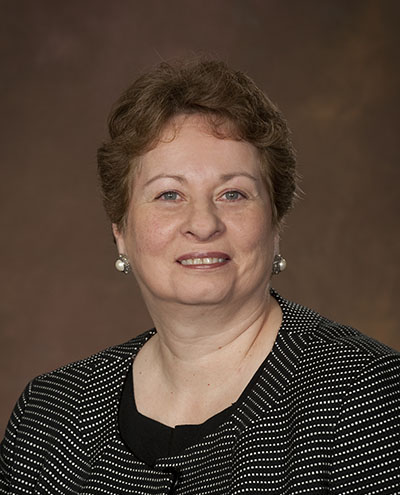Diana Rodriguez-Algra first became an active participant in Michigan’s philanthropic infrastructure through her work with the newly-established Michigan Campus Compact. As the first executive director, she worked to instill a sense of civic duty at the organization’s 16 member colleges and universities. One of the program’s early projects provided a series of venture grants to member faculty to implement a service-learning pedagogy. Students were encouraged to engage with their local communities as part of the course curriculum. She also coordinated an annual conference and supported initiatives on public service and civic responsibility.
In 1991, Rodriguez-Algra became the first executive director of the Michigan Community Service Commission (MCSC). Through the Commission, she worked with the governor’s office, state departments, corporations, foundations, higher education institutions, nonprofit organizations, and volunteer centers to improve volunteerism and community service in the state. After three years with MCSC, she was asked to move into leadership at the newly formed Corporation for National and Community Service in Washington, D.C., and served as the director for AmeriCorps’ national and state programming. Even though funds were limited, there was great potential in supporting community volunteer infrastructure:
“When you have an AmeriCorps member that generates 10 additional volunteers by their work in a community, and you multiply that by the number of AmeriCorps members that we can have in the country – can you imagine that power?”
Rodriguez-Algra later returned to Michigan as a service-learning coordinator for MCSC, and collaborated with the Council of Michigan Foundations to develop service-learning resources for policy makers and educational leaders across the state. Some of these resources included hosting legislative hearings for state representatives, providing technical assistance to leaders in education, and developing a series of events on the sustainability of service-learning.
In 2005, as the executive director of the Volunteer Centers of Michigan, Rodriguez-Algra had the opportunity to work with local United Ways and community leaders to develop volunteerism in their regions. Housed under the Michigan Nonprofit Association, the Volunteer Centers of Michigan continue to receive support from the permanent ConnectMichigan Alliance endowment. Her philosophy, while leading Michigan’s 28 volunteer centers, was to foster trust in local leadership:
“Human needs are fairly the same, no matter whether you’re in a rural community or in an urban area. We wanted to make sure that volunteering was really critical to how that community operated, not for us to come along and say, ‘We have the blueprint for your success.’ The success was really built within the community structure that they had.”
Throughout her career, Rodriguez-Algra has improved volunteer infrastructure at the community, state, and national levels. Her leadership has facilitated opportunities for students, public policy makers, and citizens to engage in both the theory and practice of community service.























